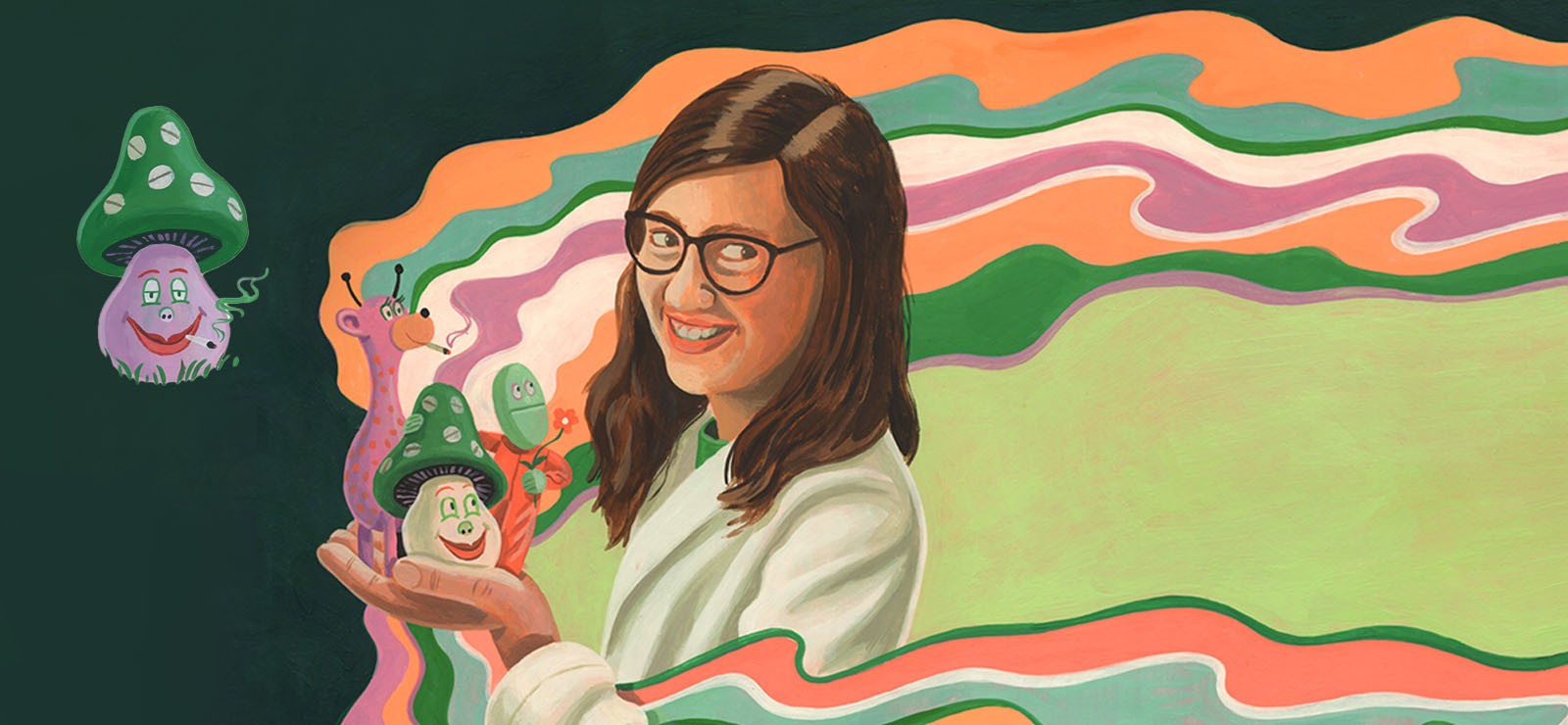Eline Pottie is addicted to drugs, well to researching them anyway. As a postdoc, she is investigating how psychedelics work and where the effects come from. “I find it fascinating that we still don’t know why these drugs make us hallucinate,” she says.
“Drugs intrigue me,” says Eline Pottie. “While studying pharmaceutical sciences, I became fascinated by the question: how can a mini molecule have such a gigantic effect? Small pills, for instance, are capable of lowering your blood pressure. And psychedelic drugs make you hallucinate.”
So when she got the chance to do a PhD in the toxicology lab following her master’s degree in drug development, she did not hesitate for a second. Her field: the effect of psychedelic drugs on the body.
You might think we would know the effects of psychedelic drugs by now. But we don't?
Eline Pottie: “We know the long-term effects of drugs that have been on the market for a while, such as LSD, psilocybin (magic mushrooms, Ed.) and mescaline. But in what way those psychedelics cause hallucination, we don’t know. Besides, people are curious about new substances. New drugs come along all the time, with even more effect. Or they look for new drugs that are not yet on the list of prohibited substances and try to circumvent the legislation. When it comes to those new drugs, we don’t know the effects at all.”
So how exactly do you measure those effects?
“Simply put: our team has developed a test to measure the effects of psychedelics at the cell level. We put psychedelic drugs in contact with a cell and see how it reacts. Or rather, how a part of it reacts. Cells are made up of proteins, including proteins that serve as ‘messengers’. There used to be a belief that all those messengers in a cell responded equally strongly to drugs. In recent years, that thinking has changed. Now we know that not all messengers respond equally strongly. I am trying to find out which ones they are, in order to unravel what exactly is happening.”
How do you tell whether a protein responds or not?
“We use a luciferase protein for that. You also find these in glow-worms and luminous jellyfish. As soon as they are activated, for example by psychedelics, those proteins give off light. So you get an indication that there is a reaction.”
And you can deduce the effect of that substance on humans?
“Not quite. Just because a cell reacts to a substance doesn’t mean your body will react in the same way. Why? Depending on how you take the drugs, they end up in a certain place in your body. If they don’t end up in the ‘right’ place, your body may not respond to the drugs. In other words, it’s not because the cell in our lab reacts to psychedelics that your body will react. But it does give an indication.”
Why are you conducting this research? To prevent dangerous drugs from entering the market?
“We mainly want to know how much the cells react. These reactions cannot be directly linked to the psychedelic effects or to possible dangers. This is simply because science does not yet know what exactly makes that substance psychedelic. By finding out how cells react, you can learn more about its dangers, as well as the possible opportunities. In recent years, scientists have been exploring whether you might use psychedelics to treat depression, for example. Under the guidance of therapists, of course.”
What do you hope to achieve with your research?
“My dream is to discover a difference between psychedelic and non-psychedelic substances at the cellular level. Although I have to be immediately realistic: in the United States, large groups are already researching that. They are pumping millions of dollars into that research, so it’s hard to compete. I would already be happy to contribute something small to that story.”
By the way, how do you guys know when there are new drugs? Do you guys do field research?
“(laughs) It doesn’t work like that. On the one hand, we base ourselves on reports from European bodies that signal when new substances of concern are emerging. On the other hand, we rely on the book ‘PIHKAL: A Chemical Love Story’. It was written by a chemist who made new substances and tested them himself. The things in it are very useful to us.”
And the drugs themselves, where do they come from? Presumably not from a dealer?
“(laughs) No, that’s right. Our lab is licensed to buy certain small quantities of those substances from chemical firms.”
You come into contact with drugs on a daily basis. Have you ever been tempted to test some yourself?
“Certainly not. I think I know too much by now for that. I don’t live under the illusion that drugs can do no harm. On the contrary: they can be very nasty.”
Eline Pottie is a postdoctoral researcher at Ghent University. She works in the toxicology laboratory. Her favourite spot at Ghent University? The big stairs at the new building of the Faculty of Pharmaceutical Sciences. Preferably in the sunshine.
